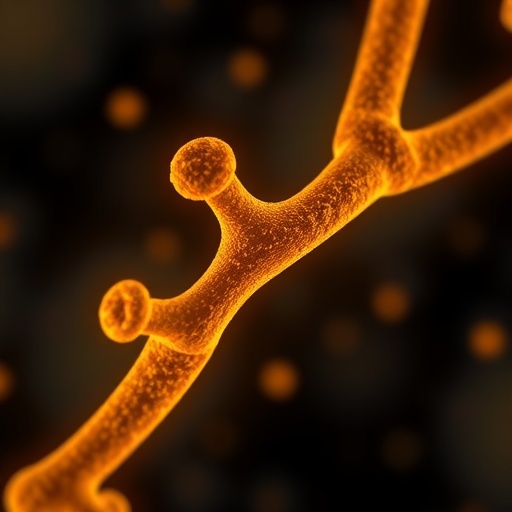In a groundbreaking initiative poised to redefine our understanding of cancer biology, researchers at the University of Arizona Cancer Center have embarked on an ambitious scientific quest to unravel the enigmatic consequences of losing the Y chromosome in immune cells and its ramifications in bladder cancer progression. Backed by a substantial grant of up to $6.5 million over seven years from the National Cancer Institute (NCI), this pioneering research spearheaded by Dr. Dan Theodorescu seeks to penetrate the molecular intricacies underlying this chromosomal aberration and harness the findings toward novel therapeutic strategies.
The Y chromosome, a defining genetic feature of males, harbors roughly 100 genes, many of which remain poorly characterized in the context of oncogenesis and immune regulation. Loss of the Y chromosome (LOY) in somatic cells, particularly immune cells circulating in the bloodstream, is a nonhereditary genetic alteration known to accumulate with age and has been epidemiologically linked to adverse clinical outcomes including heightened cancer mortality and cardiovascular disease. Yet, the mechanistic pathways bridging LOY to disease susceptibility have eluded clear definition until now.
Dr. Theodorescu’s laboratory has established foundational insights revealing that bladder tumors deficient in the Y chromosome exhibit markedly aggressive behavior, implicating a direct link between Y chromosome integrity and tumor biology. Crucially, his work extends beyond cancer cells themselves, demonstrating that LOY in immune cells compromises immune surveillance and anticancer responses, thereby creating a tumor-permissive microenvironment. This dual effect suggests that LOY may represent a convergent vulnerability exploited both by malignant cells and by immune evasion mechanisms.
Employing cutting-edge stem cell engineering alongside genetically precise mouse models, the study aims to dissect how specific losses of Y chromosome genetic content influence T cell functionality—a critical component of adaptive immunity—and subsequent tumor growth dynamics. By selectively inhibiting individual Y-linked genes, the researchers anticipate uncovering molecular pathways by which these genes normally constrain tumor aggressiveness and modulate immune efficacy.
A remarkable facet of this work includes the integration of high-throughput drug screening platforms designed to test thousands of compounds, encompassing FDA-approved medications and investigational drugs. This approach is intended to identify candidate therapies that can specifically target cancers lacking the Y chromosome or reinvigorate the function of immune cells compromised by LOY. Such pharmacogenomic insights hold the promise of personalized medicine refinement in male cancer patients affected by this chromosomal anomaly.
In addition to mechanistic elucidation, Theodorescu’s group is investigating the intricate interplay between LOY in tumor cells and the surrounding tumor microenvironment—a heterogeneous matrix of stromal cells, vasculature, and immune infiltrates that collectively influence tumor progression. Characterizing how LOY shapes this ecosystem could reveal novel biomarkers and therapeutic targets, ultimately improving clinical outcomes.
Significantly, the implications of this research transcend bladder cancer. The phenomenon of LOY is prevalent across multiple cancer types and aging populations, suggesting broad applicability of the findings. By establishing foundational biology of Y chromosome loss and its functional consequences, this initiative aspires to lay the groundwork for subsequent translational and clinical studies, ultimately enhancing cancer prevention, early detection, and treatment paradigms.
Moreover, the investigation will explore how Y chromosome loss in both cancerous and immune cells might affect responses to advanced immunotherapies such as chimeric antigen receptor (CAR) T-cell therapy. This modality customizes immune cells to recognize and attack tumors but has seen variable success in solid tumors like bladder cancer. Understanding the genetic and immunological context shaped by LOY may be key to optimizing these next-generation treatments.
“The loss of the Y chromosome in cancer biology represents an undiscovered country, rife with potential for breakthroughs,” Dr. Theodorescu explains. “Our findings so far underline the importance of Y chromosome genes in influencing cancer aggressiveness and immune function. We are optimistic that this research will translate into impactful clinical applications that improve patient survival and quality of life.”
As this endeavor progresses, the University of Arizona team remains committed to unraveling the complex genetic and immunological interplay driven by Y chromosome loss. By blending molecular genetics, immunology, and cancer biology with innovative experimental models and drug discovery techniques, the project exemplifies a holistic approach to confronting a mysterious yet significant factor in male health and oncology.
This research initiative stands as a testament to the evolving landscape of precision oncology, where genetic nuances once overlooked gain prominence as vital determinants of disease trajectory and therapeutic responsiveness. Future investigations stemming from this work may revolutionize our conception of sex chromosome biology in cancer and inspire targeted interventions that leverage the unique vulnerabilities conferred by chromosomal loss.
Ultimately, the fight against bladder cancer and related malignancies may benefit profoundly from insights derived from the Y chromosome’s secret life—transforming what was once thought to be genetic background noise into a symphony of potential breakthroughs in cancer control and immunotherapy.
Subject of Research:
Effects of Y chromosome loss in immune cells and bladder cancer progression
Article Title:
Unraveling the Role of Y Chromosome Loss in Bladder Cancer Aggressiveness and Immune Dysfunction
News Publication Date:
Not specified
Web References:
https://click.comms.arizona.edu/?qs=ed7a3852ad85ccfd672d000003381560526e597ac430d622de4cade72d68911e48a64ef6746d6fe547c238366627c7bc1641d34b6a3f0b43
https://click.comms.arizona.edu/?qs=ed7a3852ad85ccfdca68b037e975caf90a5c63d996c1832e8127caaeb9367e2e8a52c42300749882bd1e6297c6f28c4463f7ae7ddbe1feaf
https://click.comms.arizona.edu/?qs=ed7a3852ad85ccfde1cd5e7264b5172b31f0e3a37085ecfd38d6ab5d317f44aae56d7cb54a1d1cc7db2025142462f47910b8910dedb3fe15
Image Credits:
Illustration by Joshua Elz, University of Arizona Cancer Center
Keywords:
Cancer, Y chromosomes, Immune system, Chromosomes, Cancer risk




